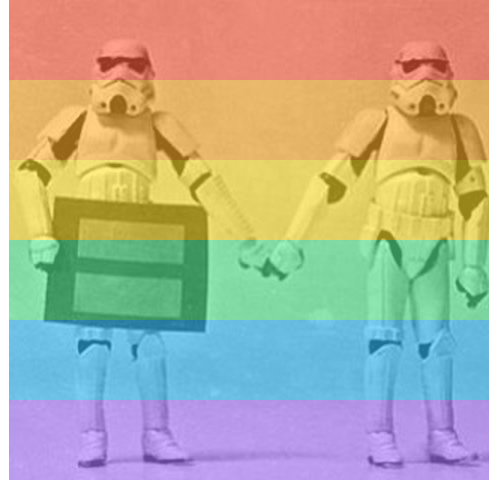
A guest post by an LGBTQ ministry candidate in the Washington DC area of The United Methodist Church to help straight clergy like me learn how to be better allies. Take a read!
===
12 Tips for Clergy Allies
T.C.Morrow
So you want to be an ally to LGBTQ people? Twelve tips for United Methodist clergy.
1. Know what you believe and why. Study scripture, engage Wesleyan/Methodist history and the tradition of the Christian faith, use your brain, open yourself to the experiences of others through the ages and today. Don’t forget to talk to LGBTQ people, talk to family members of LGBTQ people.
2. Preach the good news. Preach the hope and new life of resurrection. Preach how Jesus did not back down when religious and civil authorities wanted to silence him. Preach that Jesus the Christ came not only to save the people who think and act just like “us”, but rather God’s grace is available to all.
3. Teach the scriptures. Don’t shy away from the Bible. Engage the texts. Teach exegesis.
4. Stop operating from a place of fear. If you are trying to be an ally to someone who is living open and honestly, you should work to do the same. Do not put your own fears onto others.
5. Work on living more fully into our Baptismal Covenant vows. Study and teach the UM understanding of baptism. Look for opportunities for reaffirmation of baptism. Reflect on how are you exercising “the freedom and power God gives you to resist evil, injustice, and oppression in whatever forms they present themselves”.
6. Stop presuming LGBTQ need your protection. If it is asked for, provide it. But do not presume you know how to “protect” LGBTQ people or that it is your job to do so.
7. Don’t tell stories that are not your own. Use the power and agency that you have. Tell your story and invite people to tell their stories. Pay attention to whose voices are missing from conversations.
8. Invite LGBTQ people as speakers. Invite an LGBTQ person to speak from your pulpit or share testimony about what it means for them to be LGBTQ and Christian. Hold a screening of a film and invite an LGBTQ person as respondent.
9. Attend an implicit bias training. If you have never attended one, first go to one yourself. And then think about how you might have one for your charge, cluster, or community.
10. Remember that not all LGBTQ people are out. Remember that not all LGBTQ people are called to be a public voice for LGBTQ inclusion. Remember that no one LGBTQ person can speak for the experiences of other LGBTQ people.
11. Don’t let your overriding concern be your pension and job security. It is prudent and Wesleyan to be responsible with financial resources. However, think about those who have been shut out of the opportunities to begin with or the risk that some have taken by coming out.
12. Pray. Pray boldly. Pray as an individual and in community. Think about the prayers you are offering in worship and other settings. Engage study of prayers used regularly like the Lord’s Prayer.
T.C. Morrow is on the staff of the National Religious Campaign Against Torture and a candidate for ordained ministry in the United Methodist Church. She holds a M.Div. from Wesley Theological Seminary and a BA in Physics from Vassar College. A lifelong United Methodist and member at Foundry UMC in Washington, DC, T.C. is firmly rooted in the Wesleyan tradition of the Christian family and has a passion for equipping people to put their faith into action for the sake of building up the kingdom of God.
===
Your Turn
Thoughts?
Thanks for reading, commenting, and sharing on social media.

Thanks for posting this, Jeremy. I love this resource. It’s straight forward, prophetic, and super helpful as a laity ally.
Putting this at the top of my “Open If You Survived Candidacy & Got An Appointment” file. Thank you!